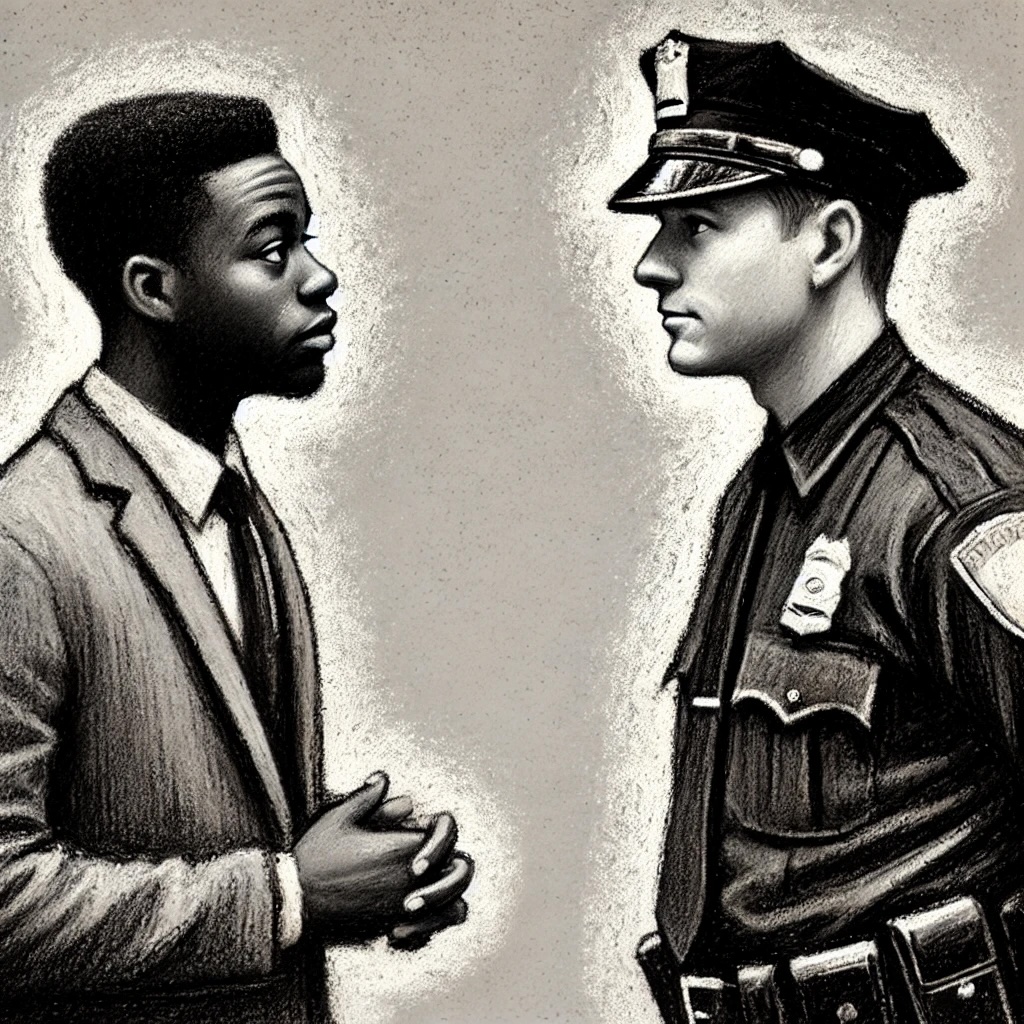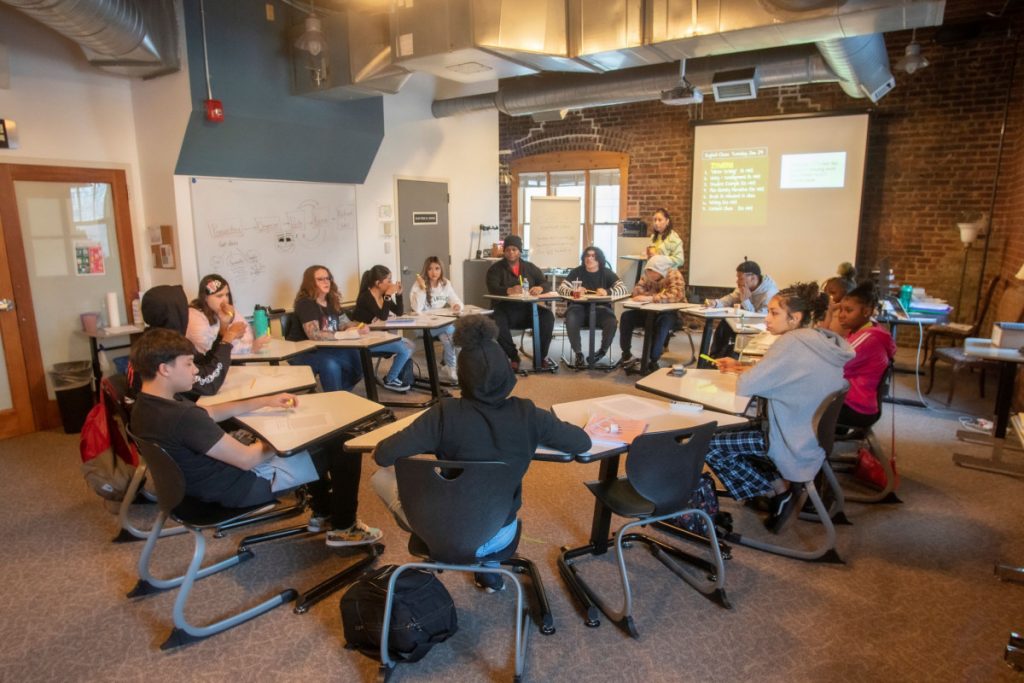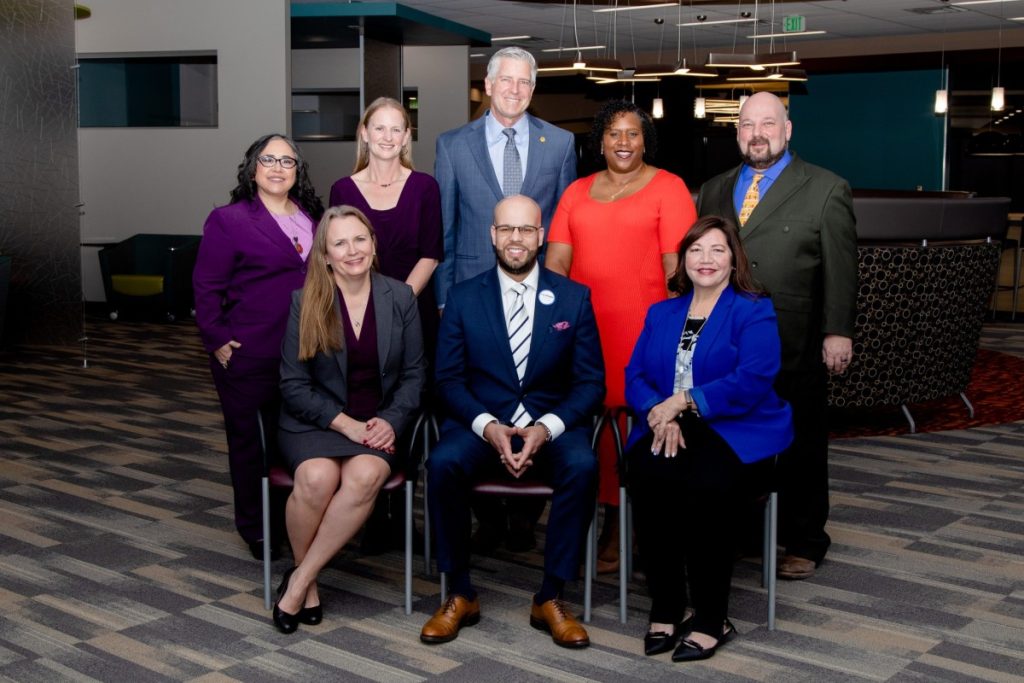Education plays a unique role in society. We get to see nearly all members of society move through their developmental, snotty-nose stages.
We see the bully and the bullied, the homeless students and the rich kids, the “newcomer” and the “native.” We learn about society before it’s fully formed. And during that maturation process, we develop empathy for all students.
You know what that also means?
It means we saw the following folks grow up: the judge, the prosecutor, the victims, the defense attorney, the jury, the defendant, the arresting officer, the police chief, etc.
Everyone in the judicial system has played on a jungle gym at some point. Each prison guard and inmate has had a parent-teacher conference. Those with badges and those avoiding traffic tickets have all raised their hand in class at least once.
That perspective allows us to understand both sides of the story. I had a student who came into the building one day, walked straight up to another student, punched them, and walked away.
Typically, educators would separate the two, try to understand what was at play, have both write statements, and determine next steps from there. It turns out the student who was punched had been bullying the right-handed slugger online. And, of course, the videos had been deleted – yay Snapchat!
In that scenario, educators must be sure to listen to both sides of the story, respect both parties involved, and come to some sort of solution.
Here is where the intersection between policing and student development gets complicated.
Because schools don’t always get that process right, students are harmed. Maybe that looks like being too punitive towards a child when they genuinely just made a mistake. Maybe a teacher has yelled at you before. These experiences cause pain. And that pain has impacted every person in this country.
Because that teacher yelled at you, you yell at others when you’re frustrated. Because that teacher always puts you in the corner whenever you make a mistake, you struggle around authority (that one is me).
In fact, a 2022 study suggests, “a relationship exists between the well-being of adults and their experiences with teachers during childhood and adolescence” (Dittman and Forstmeier). Simply put, negative exchanges with teachers – which all of us have had – impact you in the long run.
What we haven’t acknowledged is that the pain that police officers felt in schools impacted them in negative ways just like everyone else. Now, add power to the equation. A scorned police officer using real, possibly negative school experiences as a foundation. That’s a scary concept. Not only because of what that police officer could do but because they also have done it.
Police have shot children before. I’m not suggesting it happens all the time. I’m suggesting that it has happened.
So now the same division many folks experienced in the lunchroom (I sat with the theater kids AND the jocks which is likely why I’m in education) is exacerbated by power, money, politics, more developed racism, and no mandates to interact. That’s what I like to call society.
The reason why policing is such a lightning-rod issue is because police have policies and laws that protect them when they act on some of the childhood pain they’ve experienced. And others don’t have those same protections.
But if I may, let me suggest a more accurate way of understanding the relationship between police and education, hoping to come to a pragmatic, mutual understanding.
There are teachers who have worked hard on their craft, who are intent on treating all kids well, and succeed in doing that.
There are teachers who have worked so hard on their craft who are intent on treating all kids well and don’t, because they don’t yet know how to do that.
There are teachers who haven’t worked hard on their craft and are not intent on treating all kids well and don’t because it was never their intention.
(And I am sure there are more nuances but let’s stay at these three levels for now)
Police: Can y’all acknowledge your three levels? Like for real, I will literally give you space to write your experiences and republish this article for the sake of having a well-rounded understanding between police and education.
I think what we might uncover in both professions is that we are doing similar good and similar harm to society. Not the exact same but similar.
Violence is a police officer murdering an unarmed Black boy. Violence is also a teacher demeaning that same Black boy for making a mistake in class.
Violence is intimidating a child after they are arrested for a petty crime. Violence is also intimidating a student after they speak out of turn.
We like to separate ourselves from the negatives that others do to feel better about ourselves. But really, we both are contributing to violence – just in different ways.
Don’t quote KDot on this: They are like us.
I’ll speak on behalf of the first group of teachers I described – the “working on our craft and treating kids well” crew.
Youth who became police officers: We are sorry. Some of us got it wrong but many of us want to get it right. Your pain is real and it wasn’t all on you. You might not be aware of the pain we caused you but if you question some of your actions, you might be able to get to the root of it. How can we work on this together?
I have a thought: Before this next school year, can we – this group of teachers and police officers – meet and share some ideas based on a renewed mutual understanding? With no agenda, can we talk about our experiences together?
There are techniques we (“working on craft and treating students well” crew) use on a regular basis to ensure all students feel respected in their toughest times. We would love to show you some things we consider.
Police, are there things you do on a regular basis that will help us? I’m all ears.
I would be remiss if I didn’t acknowledge that because of my own education journey, I struggle with police in general. I didn’t say I hate y’all. I just struggle with you.
But you used to be students. That means I’m willing to try.




